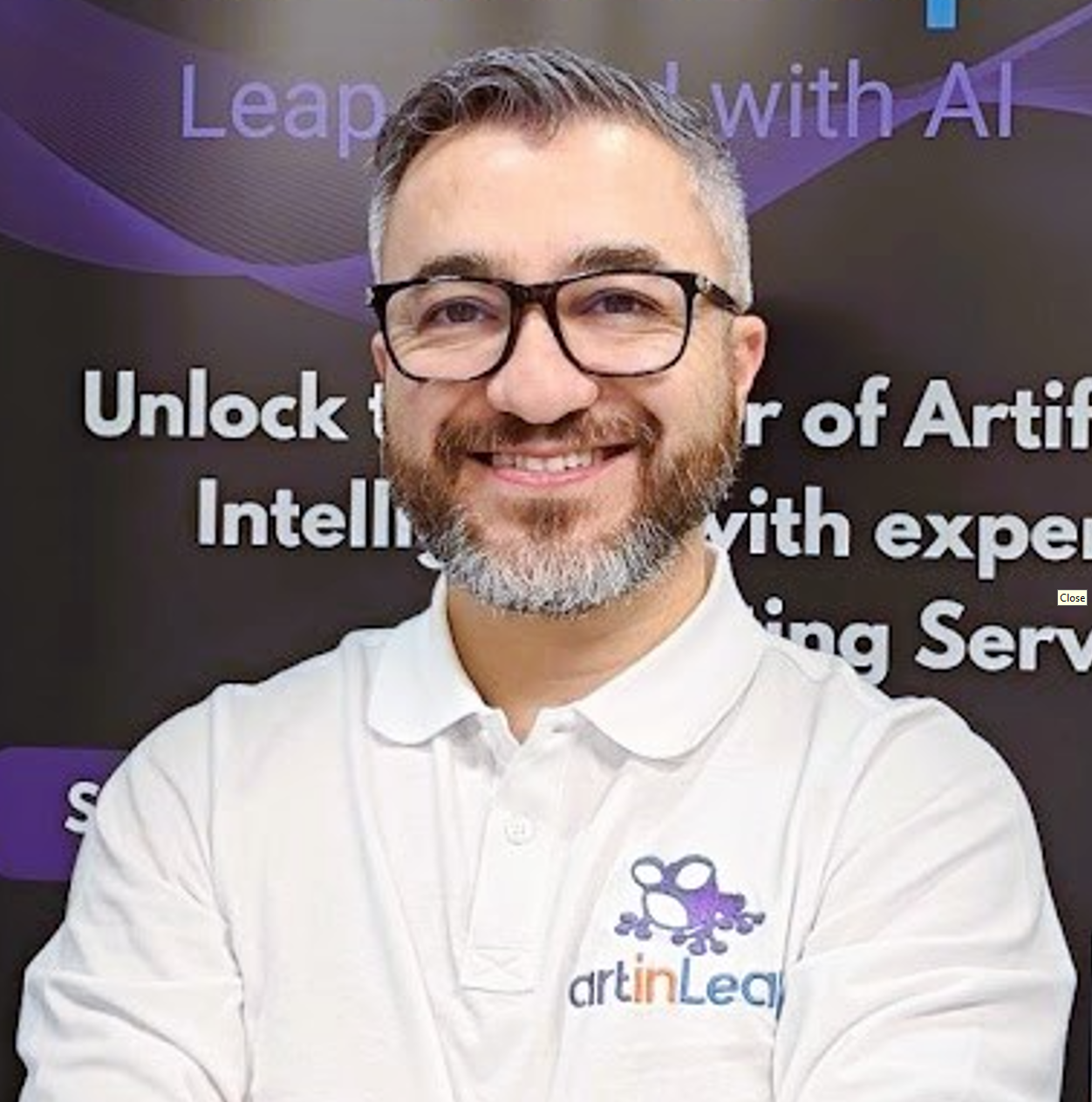Interview with Yves Frérot, CEO of HiperCom, on AI Integration in the Company
Interview conducted by Pascale Caron
Yves Frérot is a French entrepreneur who founded HiperCom, a company specializing in multichannel monitoring of distributors’ promotional activities.
Based in Poland, HiperCom operates in several Eastern European and CIS countries. He is an expert in “Promotional Share of Voice” and tracking printed promotions in markets like Russia, Ukraine, Poland, Romania, and Kazakhstan. For several years, he has integrated artificial intelligence (AI) into the core of his company.
Can you tell us about your background and the creation of HiperCom?
I left France in 1991 to move to Eastern Europe, at a time when the retail sector was starting to develop in the region. I founded a graphic design studio to produce promotional catalogs that were distributed in mailboxes, with those iconic pictures of sliced meat or canned peas. This lasted for about ten years, and we operated in Russia, Ukraine, Kazakhstan, Poland, Romania, Hungary, and even Slovenia.
In 2009, the economic crisis hit, and several retail companies started facing financial difficulties. I quickly realized that we needed to pivot to remain relevant. That’s when I ventured into promotional monitoring, a field that allowed me to stay in the retail sector while offering a different added value. We collected all available promotions, whether in paper catalogs or online, and structured them into a large database. We could then provide precise analyses to retailers and brands like Coca-Cola, Nestlé, Mars, or L’Oréal to help them understand what their competitors were doing in terms of prices and promotions.
How did you introduce artificial intelligence into your company?
I started integrating AI at HiperCom as early as 2016. At the time, we used Google Vision for image recognition. This allowed us to process promotions more efficiently by categorizing data in our databases. We had vast amounts of information collected since 2009, and AI proved to be the perfect tool to manage this data automatically.
In 2022, with the arrival of ChatGPT, we took it a step further. We now use generative AI at several levels in the company: for text correction in foreign languages like Polish or Hungarian, and to power the chatbot of our SaaS interface. We work with custom GPTs that are tailored to very specific functions in our processes.
In fact, AI is so integrated in our company that if someone applies for a job without mastering these tools, they have no chance of being hired. If they don’t have a ChatGPT subscription, they don’t even get through the interviews.
Does using ChatGPT pose any security concerns for your data?
Not for us. Our databases are constantly updated, so commercial information, like the price of butter in Bucharest today, would be worthless in a week. These aren’t sensitive data.
Have you faced human challenges when integrating AI into the company?
When we introduced AI at the beginning of 2023, some of my colleagues took up to 18 months to adapt to this new approach. People don’t like change and are often reluctant to modify their habits. It’s normal, but it requires a lot of education and concrete examples to show them the usefulness of AI in their daily work.
What I always emphasize in my talks is that AI integration in a company must be led by the CEO. If you leave it to the IT department, you’re headed for failure. AI must be introduced at all levels of the organization, from the CEO to the administrative assistant. Every position should be concerned with these new technologies because there is a tool suited for each role.
What technical challenges have you encountered?
The technical side is manageable with the right expertise. The real challenge is user adoption. It takes time to learn how to master AI, understand how it works, and integrate it into daily processes.
Have you implemented any specific training to help your teams?
Not really formal procedures, because we’re a small structure of 60 people spread across several countries. I prefer a practical, hands-on approach. When I visit our offices, I train my employees on-site, showing them how to use AI tools. This works better than complex manuals.
What positive changes have you observed from AI integration?
The impact is huge. We are much more responsive and effective, whether on social media or in our commercial operations. Personally, AI allows me to juggle two roles simultaneously: I’m both a business leader and a speaker. Without AI, I couldn’t manage these two roles.
For example, while waiting for your call at the airport, I was able to write a meeting report in Italian with a company I met two days earlier. It’s something I couldn’t have done so quickly without AI’s help.
However, my teams are not all at the same level of AI use as I am. But I am confident they have significant room for growth.
What advice would you give SMEs that are still hesitant to adopt AI, considering current trends and sector feedback?
The most important thing is to take the plunge quickly, as AI is becoming essential. In one of my LinkedIn posts, I mention a recent report conducted by Google Cloud and the National Research Group. They surveyed 2,500 business executives with a turnover of over $10 million. It shows that generative AI has an impact on commercial and financial performance. In fact, 84% of companies adopt a generative AI application within six months, and 74% see a return on investment (ROI) within a year.
These companies observe significant productivity gains, with 45% of them noting a doubling of their employees’ efficiency, and 63% reporting growth directly driven by AI. This shows that AI can transform how you manage your operations. But beware, the support of leadership is crucial: 91% of companies that aligned their business and technology goals around AI saw revenue growth. In practice, this translates into process optimization, transforming customer relationships through predictive analytics tools, and the ability to make informed decisions based on precise, real-time data.
I recommend SMEs also invest in training, not just at a technical level, but across all levels of the organization. For me, AI adoption must be collective and gradual—it’s a real cultural shift.
The applications of AI in business are endless, from content creation to optimizing repetitive tasks. Finally, I want to remind you that AI is not here to replace humans, but to enhance their abilities, like Iron Man’s suit. My advice for SMEs is to start now. If you don’t, you risk missing out on a major wave of innovation.











